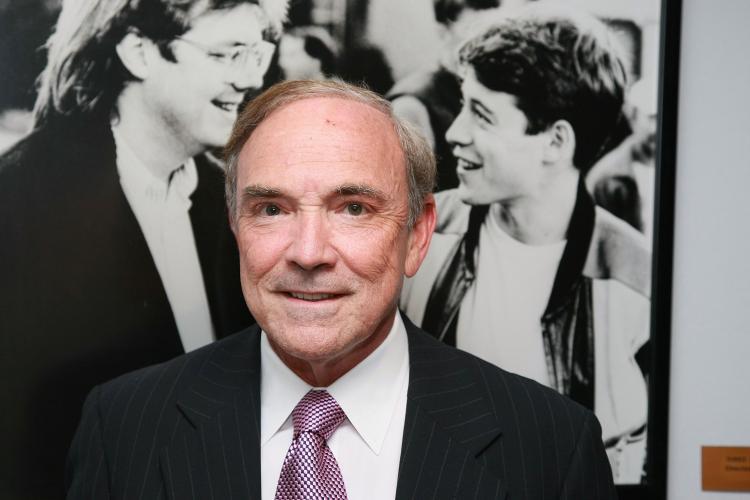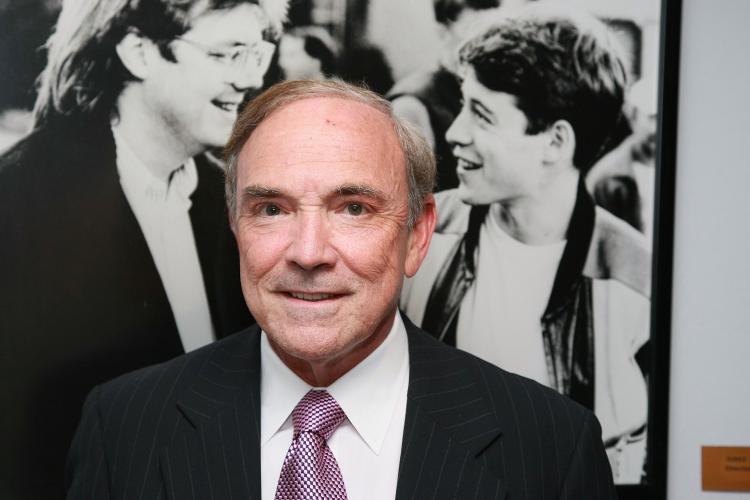The U.S. Commodity Futures trading Commission (CFTC) recently approved two exchanges to trade future contracts related to film box office performance of new movies. In essence, investors will be able to hedge the performance of an upcoming film to be above expectations or fail with their box office receipts.
However, vehement opposition from Hollywood and lawmakers who want to deter investors from speculating about a movie’s success and failure has put a cloud of doubt over the financial instruments being released on Wall Street.
In April, the CFTC approved applications from Cantor Futures Exchange and Media Derivatives (MDex) for designation as contract markets, which enabled it to set up exchanges to set up futures trading contracts. The MDex will be known as the Trend Exchange or TrendEx. The necessary procedures to be made before actual trading commences is for the CFTC to approve particular contracts. This is contingent upon the support from the film industry and its supporters in the U.S. Congress.
“If there were any real support for this within the industry, there wouldn’t be a congressional ban on it,” said Michael Greenberger, a professor of law at the University of Maryland and former director of Trading and Markets at the CFTC in an interview with CNNMoney.com. “So I would say—in gaming terms—that there’s a better-than 50-50 chance it will be banned.”
The proposal from the two exchanges is to buy/sell futures contracts linked to the box office receipts of major Hollywood films. The Cantor Exchange will cash-settle its contracts at a value directly indexed to the U.S. and Canadian box office receipts tied to a specific film around a four week period. MDex prefers to only index its cash settlement to the film’s U.S. and Canadian performances over its opening weekend. Overall, an investor may be able to bet for or against the performance of the release of a new film from a minimum of $50 on the Cantor Exchange. TrendEX will sell contracts starting from $5,000.
A typical scenario of a contract could be for Russell Crowe’s “Robin Hood.” Perhaps an investor would like to be on the Cantor Exchange before the movie’s release, they could hedge that the film is valued at $100 dollars if the market forecasts the film will make $100 million in the box office.
If “Robin Hood” earnings exceed $200 million, the contract seller would lose $100, but the buyer would earn $100.
Advocates of the proposed futures contracts argue that the initiative could provide a buffer for films that potentially flop in the box office, which could also offer a form of insurance to offset the risk by traders.
Cantor president Richard Jaycobs said film futures “Creat[es] a public transparent market will broaden an industry that has been down substantially from a lack of financing…” if you have a market that can value how a film is going to perform, the fact that you can share that risk means that it’s much easier to finance.”
Given the scrutiny and controversy surrounding Wall Street with the aftermath of the global financial crises, a counter argument of the new futures contracts could leave room for legalized gambling on film as well as potential manipulation and encourage insider trading. Hence particular authorities are investigating the grounds for such contracts being traded.
The Motion Picture Association of America (MPAA), the trade body representing the six major Hollywood studios, has been vocal about its disapproval of the contracts.
“There’s lots of rumor and gossip about a movie before it opens, that’s what people talk about,” said (MPAA) President and Interim CEO Bob Pisano. “But this is going to put financial authenticity and financial authority behind what are simply guesses as to how a movie will open.”
“These are proposals that ought to be under the jurisdiction of the federal gambling and gaming laws, not the federal commodity trading laws,” said Pisano. In written testimony submitted to the U.S. House of Representatives subcommittee on general farm commodities and risk management, Pisano highlighted that box-office performance is susceptible to both validated and invalidated hearsay.
“The ability to profit from rumors by trading in the proposed contracts would intensify any incentive to spread false rumors in a manner that [Cantor and MDex] could neither detect nor control”.
The premise of setting up a futures exchange is to facilitate the industry, given that that the industry that is being traded is already up in arms about the move, it becomes excessive speculation itself.
Senators Dianne Feinstein (D-Calif.), Barbara Boxer (D-Calif.), George LeMieux (R-Fla.), and Al Franken (D-Minn.) have all written to the CFTC in April requesting the commission to delay approval of film futures while the Senate is deliberating reforms on derivatives trading.
However, vehement opposition from Hollywood and lawmakers who want to deter investors from speculating about a movie’s success and failure has put a cloud of doubt over the financial instruments being released on Wall Street.
In April, the CFTC approved applications from Cantor Futures Exchange and Media Derivatives (MDex) for designation as contract markets, which enabled it to set up exchanges to set up futures trading contracts. The MDex will be known as the Trend Exchange or TrendEx. The necessary procedures to be made before actual trading commences is for the CFTC to approve particular contracts. This is contingent upon the support from the film industry and its supporters in the U.S. Congress.
“If there were any real support for this within the industry, there wouldn’t be a congressional ban on it,” said Michael Greenberger, a professor of law at the University of Maryland and former director of Trading and Markets at the CFTC in an interview with CNNMoney.com. “So I would say—in gaming terms—that there’s a better-than 50-50 chance it will be banned.”
The proposal from the two exchanges is to buy/sell futures contracts linked to the box office receipts of major Hollywood films. The Cantor Exchange will cash-settle its contracts at a value directly indexed to the U.S. and Canadian box office receipts tied to a specific film around a four week period. MDex prefers to only index its cash settlement to the film’s U.S. and Canadian performances over its opening weekend. Overall, an investor may be able to bet for or against the performance of the release of a new film from a minimum of $50 on the Cantor Exchange. TrendEX will sell contracts starting from $5,000.
A typical scenario of a contract could be for Russell Crowe’s “Robin Hood.” Perhaps an investor would like to be on the Cantor Exchange before the movie’s release, they could hedge that the film is valued at $100 dollars if the market forecasts the film will make $100 million in the box office.
If “Robin Hood” earnings exceed $200 million, the contract seller would lose $100, but the buyer would earn $100.
Advocates of the proposed futures contracts argue that the initiative could provide a buffer for films that potentially flop in the box office, which could also offer a form of insurance to offset the risk by traders.
Cantor president Richard Jaycobs said film futures “Creat[es] a public transparent market will broaden an industry that has been down substantially from a lack of financing…” if you have a market that can value how a film is going to perform, the fact that you can share that risk means that it’s much easier to finance.”
Given the scrutiny and controversy surrounding Wall Street with the aftermath of the global financial crises, a counter argument of the new futures contracts could leave room for legalized gambling on film as well as potential manipulation and encourage insider trading. Hence particular authorities are investigating the grounds for such contracts being traded.
The Motion Picture Association of America (MPAA), the trade body representing the six major Hollywood studios, has been vocal about its disapproval of the contracts.
“There’s lots of rumor and gossip about a movie before it opens, that’s what people talk about,” said (MPAA) President and Interim CEO Bob Pisano. “But this is going to put financial authenticity and financial authority behind what are simply guesses as to how a movie will open.”
“These are proposals that ought to be under the jurisdiction of the federal gambling and gaming laws, not the federal commodity trading laws,” said Pisano. In written testimony submitted to the U.S. House of Representatives subcommittee on general farm commodities and risk management, Pisano highlighted that box-office performance is susceptible to both validated and invalidated hearsay.
“The ability to profit from rumors by trading in the proposed contracts would intensify any incentive to spread false rumors in a manner that [Cantor and MDex] could neither detect nor control”.
The premise of setting up a futures exchange is to facilitate the industry, given that that the industry that is being traded is already up in arms about the move, it becomes excessive speculation itself.
Senators Dianne Feinstein (D-Calif.), Barbara Boxer (D-Calif.), George LeMieux (R-Fla.), and Al Franken (D-Minn.) have all written to the CFTC in April requesting the commission to delay approval of film futures while the Senate is deliberating reforms on derivatives trading.





